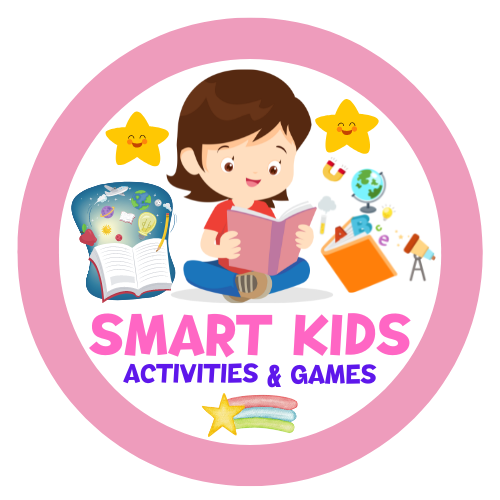Key Takeaways:
- Reading aloud to children is an effective strategy that promotes bonding, inspires a love for reading, and develops early language and literacy skills.
- Establishing a routine of daily reading and using board and cloth books for babies can enhance literacy development.
- Asking questions, rereading favorite books, and pointing out similar words can enhance literacy development.
- Counting objects on the page and encouraging preschoolers to tell the story are valuable techniques.
- Reading with passion and setting an example by letting children see adults reading are important.
The Role of Literacy in Child Development
Literacy skills in early childhood extend beyond the ability to read and write. It encompasses comprehension and effective communication, which are essential for a child’s overall development. Exposure to language, printed materials, and meaningful interactions plays a crucial role in developing these skills. By engaging in early literacy strategies, children can foster a love for language and words, setting the foundation for their future academic success. One key aspect of early literacy is phonemic awareness, the ability to recognize and manipulate sounds in spoken language. This skill is fundamental for learning to read and write. By honing this ability, children develop the necessary foundation to decode words and understand their meanings. Early literacy activities, such as reading, storytelling, and interactive play, provide opportunities for children to develop their phonemic awareness while exploring the wonders of language.“The development of strong literacy skills in early childhood has long-term benefits, including better academic performance, language acquisition, critical thinking abilities, and overall success in various aspects of life.”Developing strong literacy skills in early childhood has a profound impact on a child’s academic performance and overall success. Children who have a solid foundation in literacy are better equipped to comprehend complex texts, express themselves effectively in writing, and engage in critical analysis. Moreover, these skills contribute to better language acquisition, critical thinking abilities, and overall success in various aspects of life.
Early Literacy Strategies for Reading Skills Development
When it comes to promoting reading skills development in early childhood, there are effective strategies that parents and educators can utilize. Establishing a routine of daily reading and using board and cloth books for babies are impactful techniques. Asking questions, rereading favorite books, and pointing out similar words can enhance literacy development. Additionally, counting objects on the page and encouraging preschoolers to tell the story are valuable techniques to promote engagement and learning. It is also vital to read with passion and set an example by letting children see adults reading. By creating a positive reading environment, children are more likely to develop a habit of listening to stories and loving books. These early literacy strategies not only foster reading skills development but also cultivate a lifelong love for reading and learning.| Benefits of Early Literacy | |
|---|---|
| Improved academic performance | Children with strong literacy skills perform better in school, excel in reading comprehension, and have a solid foundation for academic success. |
| Enhanced language acquisition | Early literacy activities contribute to expanded vocabulary, improved language skills, and better communication abilities. |
| Development of critical thinking | Literacy skills provide the tools necessary for children to think critically, analyze information, and make informed decisions. |
| Success in various aspects of life | Strong early literacy skills lay the foundation for success in personal, professional, and social endeavors throughout a child’s life. |
Fostering a Love for Reading: Key Components of Early Childhood Literacy
Developing early literacy skills in young children is crucial for setting them on the path to becoming lifelong readers. Fostering a love for reading involves various components that contribute to their overall literacy development. Let’s explore these key components and understand their significance in promoting early literacy.Language Development and Vocabulary Acquisition
Language development plays a fundamental role in early childhood literacy. Parents and educators can promote language development by engaging children in conversations, exposing them to a wide range of words, and reading aloud. Through meaningful interactions, children expand their vocabulary and learn how to express themselves effectively. By immersing children in language-rich environments, we provide them with the tools they need to develop strong literacy skills.Phonological Awareness: The Building Block of Literacy
Another essential component of early childhood literacy is phonological awareness. This refers to the ability to identify and manipulate sounds in spoken language. By developing phonological awareness, children lay the foundation for reading and writing. Activities that encourage children to recognize and play with sounds, such as rhyming games and sound segmentation exercises, support their literacy development.Print Awareness and Alphabet Knowledge
Building print awareness, understanding the purposes and conventions of print, and acquiring alphabet knowledge are crucial steps in early literacy development. By exposing children to printed materials like books, signs, and labels, we familiarize them with the written word. Teaching them letter names and sounds helps them make connections between spoken and written language. These components prepare children for the exciting journey of learning to read and write.| Key Components of Early Childhood Literacy | Significance |
|---|---|
| Language development and vocabulary acquisition | Expands children’s vocabulary and enables effective communication. |
| Phonological awareness | Lays the foundation for reading and writing skills. |
| Print awareness and alphabet knowledge | Builds familiarity with written language and prepares children for reading and writing. |
Effective Strategies for Developing Literacy Skills
Developing literacy skills in early childhood is crucial for laying a strong foundation for future academic success. Implementing effective strategies can help children develop a love for reading and enhance their overall literacy abilities. Here are some strategies that have been proven to be effective:- Interactive Reading and Storytelling: Engaging children in discussions during storytime not only improves comprehension but also enhances critical thinking skills. Encourage children to ask questions, make predictions, and connect the story to their own experiences.
- Play-Based Literacy Activities: Incorporating literacy into play provides numerous opportunities for skill development. Create a print-rich environment by adding labels and signs to play areas. Encourage pretend play that involves reading and writing activities, such as setting up a pretend library or writing a story together.
- Utilizing Technology: Age-appropriate technology, such as interactive e-books and educational apps, can supplement traditional literacy activities. However, it is important to maintain a balance and ensure that technology is not the sole source of literacy engagement.
“Interactive reading and play-based literacy activities are particularly effective in promoting early literacy skills.”By incorporating these strategies into daily routines, parents and educators can help children develop a strong foundation in literacy. Remember, the key is to make the learning experience enjoyable and engaging.
Fostering a Love for Reading
In addition to the strategies mentioned above, fostering a love for reading is crucial in developing literacy skills. Here are a few additional tips:- Read Aloud: Reading aloud to children exposes them to a variety of vocabulary, develops their comprehension skills, and sparks their imagination. Make reading together a regular and enjoyable activity.
- Visit the Library: Regular visits to the library expose children to a wide range of books and encourage them to explore different genres and topics.
- Model Reading: Let children see adults reading for pleasure. Set a positive example by making reading a part of your routine.
| Strategy | Benefits |
|---|---|
| Interactive Reading and Storytelling | Enhances comprehension and critical thinking skills |
| Play-Based Literacy Activities | Provides opportunities for skill development |
| Utilizing Technology | Supplements traditional literacy activities |
The Importance of Early Literacy Skills in Academic Success
Research has shown that developing strong early literacy skills is crucial for academic success. These skills provide the foundation for reading and comprehending complex texts, writing persuasive essays, and critical analysis. Without a solid foundation in early literacy, students may struggle with their academic work and fall behind their peers. Early literacy skills also have a profound impact on a child’s social and emotional development. Effective communication, which stems from strong literacy skills, allows children to form positive relationships and contribute to their overall well-being and success in various aspects of life. The ability to express oneself clearly and engage in meaningful conversations is essential for building connections and navigating social interactions. Additionally, early literacy skills foster critical thinking abilities, enabling children to analyze information, make informed decisions, and solve problems effectively. Moreover, early literacy skills lay the groundwork for continued learning and success throughout a child’s educational journey. By developing a strong foundation in reading, writing, and comprehension at an early age, children are better equipped to handle the increasing complexity of academic tasks and assignments. This sets them up for academic achievement and opens up opportunities for further personal and professional growth.The Role of Early Literacy Programs and Interventions
Early literacy programs and interventions play a vital role in supporting children’s development and ensuring that all children have the opportunity to develop strong literacy skills. These programs focus on fostering a love for reading, providing engaging and interactive activities, and addressing any specific challenges that children may face. They aim to close the literacy gap and equip children with the necessary skills and confidence to thrive academically and in their personal lives. Through early literacy programs, children are exposed to a wide range of age-appropriate books, interactive reading experiences, and literacy-rich environments. This exposure creates a positive association with reading and encourages children to become lifelong readers. Additionally, these programs provide targeted support to children who may be at risk of falling behind in their literacy skills, ensuring that they receive the extra help and resources they need to succeed.| Benefits of Early Literacy Programs | Examples of Early Literacy Interventions |
|---|---|
|
|
“Early literacy programs are crucial for providing children with the necessary foundation for academic success. By focusing on developing strong reading, writing, and communication skills, these programs empower children to reach their full potential and excel in various areas of life.” – Dr. Jane Wilson, Literacy SpecialistIn conclusion, early literacy skills play a fundamental role in academic success and overall well-being. These skills provide the foundation for reading, writing, critical thinking, and effective communication. Early literacy programs and interventions are essential in nurturing and supporting children’s literacy development, ensuring that all children have the opportunity to thrive academically and beyond.
The Role of Communities in Promoting Early Literacy
Communities play a vital role in promoting early literacy and ensuring that all young children have the opportunity to develop strong literacy skills. By providing access to books, libraries, and educational resources, communities create an environment that supports and encourages literacy development. This access ensures that every child, regardless of their background or socioeconomic status, can engage with reading and develop a love for books. In addition to providing resources, collaboration between families, schools, libraries, and community organizations is key to promoting early literacy. Working together, these stakeholders can create comprehensive literacy programs that cater to the specific needs of young children. By sharing knowledge, expertise, and resources, they can design effective strategies and initiatives that foster literacy development in young learners.Creating a Literacy-Rich Environment
One important aspect of community involvement in early literacy is the creation of a literacy-rich environment. This involves incorporating literacy activities and materials into everyday settings such as homes, schools, and community centers. Reading corners, book clubs, and storytelling sessions can be established in community spaces to engage children and stimulate their interest in reading. By making literacy a visible and integral part of the community, children are more likely to develop a positive attitude towards reading and learning.Engaging Families in Literacy Activities
Another crucial role that communities can play is engaging families in literacy activities. Community centers, libraries, and schools can organize literacy workshops and family reading events to educate parents on the importance of early literacy and provide them with practical strategies to support their children’s literacy development. By involving families in these activities, communities empower parents to become active participants in their child’s literacy journey, reinforcing the importance of reading both at home and in the wider community.| Benefits of Community Involvement in Early Literacy |
|---|
| Increased access to books and educational resources for all children |
| Collaboration between stakeholders to design effective literacy programs |
| Creation of literacy-rich environments in homes, schools, and community spaces |
| Engagement of families in literacy activities to support their child’s development |
| Empowerment of communities to promote lifelong reading habits |
Importance of Early Literacy Interventions
Early literacy interventions play a crucial role in fostering a love for reading and supporting children who may be at risk of falling behind in their literacy skills. These targeted programs provide necessary support and resources to help children develop their reading and writing abilities, setting them up for success in their academic and personal lives. Through early literacy interventions, children are exposed to engaging and interactive activities that ignite their curiosity and promote a positive relationship with books. These programs focus on building foundational literacy skills, such as phonemic awareness, print awareness, and vocabulary development. “Early literacy interventions ensure that all children have the opportunity to develop strong literacy skills, closing the literacy gap and giving them a solid foundation for future learning.”The Benefits of Early Literacy Programs
Research has shown that children who participate in early literacy programs have improved reading abilities, higher academic performance, and greater confidence in expressing themselves. These programs not only enhance literacy skills but also contribute to a child’s social and emotional development by fostering effective communication and positive relationships. Early literacy interventions go beyond teaching reading and writing; they nurture a deep love for reading that extends throughout a child’s life. By providing targeted support and resources, these programs empower children to become lifelong readers who are curious, confident, and capable of navigating the world through literacy.| Benefits of Early Literacy Interventions | Impact |
|---|---|
| Improved reading abilities | Children develop strong foundational skills and become proficient readers. |
| Higher academic performance | Children excel in various subjects and are well-prepared for future educational challenges. |
| Enhanced social and emotional development | Effective communication and positive relationships contribute to overall well-being. |
| Love for reading | Children develop a lifelong passion for books and learning. |
The Long-Term Benefits of Early Literacy
Developing strong early literacy skills in young children has numerous long-term benefits that extend beyond their early years. These skills lay the foundation for future academic success and overall development. Children who are exposed to early literacy activities and interventions are more likely to excel academically, acquiring better language skills, critical thinking abilities, and confidence in expressing themselves. One of the key long-term benefits of early literacy is improved academic performance. When children develop a solid foundation in literacy during their early years, they are better equipped to read and comprehend complex texts, write persuasive essays, and engage in critical analysis. This advantage carries forward throughout their schooling years, enabling them to achieve higher levels of academic success. Furthermore, early literacy skills have a significant impact on a child’s social and emotional development. Effective communication, which is fostered through early literacy activities, helps children form positive relationships with their peers and adults. It also contributes to their overall well-being and success in various aspects of life, both academically and personally.The Benefits of Early Literacy at a Glance:
- Improved academic performance
- Enhanced language acquisition
- Developed critical thinking abilities
- Increased confidence in expressing oneself
- Positive social and emotional development
Conclusion
Promoting early literacy is of utmost importance in empowering children and ensuring their success in both academic and personal endeavors. By implementing effective strategies and engaging in early literacy activities, parents and educators can lay a strong foundation for children’s literacy development. Reading aloud, establishing routines, and incorporating interactive activities are powerful ways to foster a love for reading and language. Key components of early childhood literacy, such as building language skills, phonological awareness, and print awareness, play a pivotal role in shaping children’s literacy abilities. By providing access to books, libraries, and educational resources, communities can contribute significantly to promoting early literacy. Collaboration between families, schools, libraries, and community organizations is essential in creating an environment that supports literacy development for all children. Early literacy interventions and programs are vital for addressing the needs of children who may be at risk of falling behind in their literacy skills. By offering targeted support and resources, these interventions aim to close the literacy gap and ensure that every child has the opportunity to develop strong literacy abilities. Developing strong early literacy skills not only has immediate benefits but also provides a solid foundation for long-term academic success and social-emotional development. By instilling a love for reading and fostering effective communication, children are equipped with the tools they need to excel in various aspects of life. Early literacy is key to unlocking a child’s full potential.FAQ
What are some effective tips to promote literacy in early childhood?
Some effective tips to promote literacy in early childhood include reading aloud to children, establishing routines of daily reading, using board and cloth books for babies, asking questions, rereading favorite books, pointing out similar words, counting objects on the page, encouraging preschoolers to tell the story, and reading with passion.
What are the key components of early childhood literacy?
The key components of early childhood literacy include fostering a love for reading, developing strong early language and literacy skills, building print awareness and alphabet knowledge, and promoting language development and vocabulary acquisition through conversations, reading aloud, and exposure to various words.
How can communities play a role in promoting early literacy?
Communities can play a role in promoting early literacy by providing access to books, libraries, and educational resources, creating a print-rich environment, incorporating labels and signs, engaging in pretend play that involves reading and writing activities, and collaborating between families, schools, libraries, and community organizations.
What is the importance of early literacy interventions?
Early literacy interventions are crucial for children who may be at risk of falling behind in their literacy skills. These interventions provide targeted support and resources to help children develop their reading and writing abilities, foster a love for reading, provide engaging and interactive activities, and address any specific challenges that children may face.
What are the long-term benefits of early literacy?
Developing strong early literacy skills has long-term benefits that extend beyond the early years. Children who have a solid foundation in literacy are more likely to succeed academically, have better language acquisition, critical thinking abilities, and confidence in expressing themselves. Early literacy also has a positive impact on a child’s social and emotional development, as effective communication promotes positive relationships and overall well-being.
Note: For the remaining sections, there were no specific questions mentioned in the brief. Therefore, a relevant FAQ list cannot be provided.
Source Links
- https://www.graygroupintl.com/blog/early-childhood-literacy
- https://www.startearly.org/post/12-tips-to-boost-early-literacy/
- https://www.cdacouncil.org/en/5-tips-on-how-to-teach-literacy-every-day-in-early-education/
Download free activities and teaching resources Click Here
You may also be interested in
Exploring Modern Teacher Aids: Enhancing Classroom Success Empowering Future Learners with Early Childhood EducationEffective Classroom Teaching Strategies for Optimal Learning
Boosting Kids Engagement in Classroom Activities: Tips and Techniques






